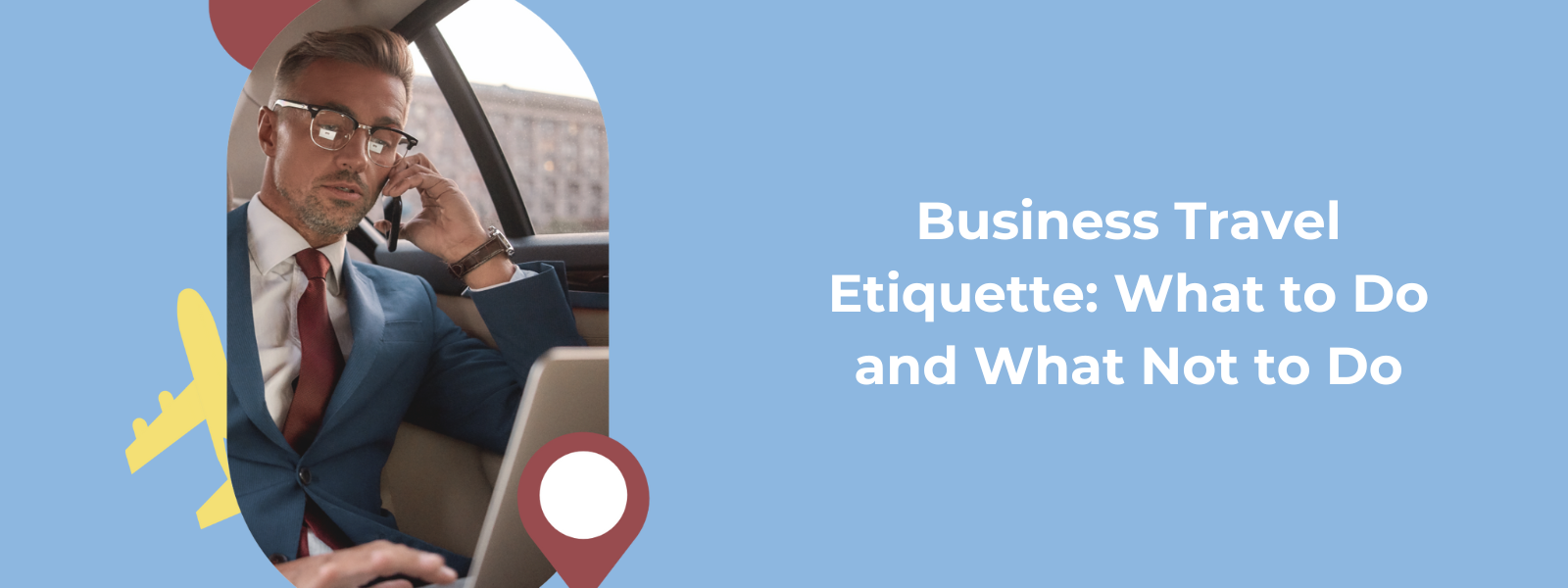Navigating the complex landscape of business travel requires more than just punctuality and a sharp suit. Understanding and practising good etiquette can make a significant difference in how you’re perceived by colleagues and clients.
Here’s a guide to help you navigate the dos and don’ts of business travel.
Before you depart
Preparation is key when it comes to business travel. Make sure you:
- Plan ahead: confirm all travel arrangements well in advance. Double-check flight and accommodation details, and ensure you have all necessary documents, such as visas and travel insurance.
- Pack smart: pack light but wisely too. Choose professional attire appropriate for the meetings and events you’ll be attending. Always include essentials like a phone charger, business cards, and any required documents.
- Understand local customs: research the culture of the place you’re visiting. Understanding local customs can help avoid any faux pas and show respect for the host country.
- Inform your contacts: let your key contacts know about your travel plans. This will help in coordinating meetings and ensuring that everyone is on the same page.
During your trip
Maintaining professionalism while travelling is crucial. Here are some practices to follow:
- Be punctual: always arrive on time for meetings, flights, and other appointments. Being punctual demonstrates respect for others’ time.
- Respect cultural norms: dress appropriately for meetings and events. Adhere to local customs, such as greeting practices and dining etiquette.
- Communicate clearly: keep your communications concise and professional. If you’re meeting with clients or colleagues, be clear about your agenda and goals.
- Mind your manners: whether you’re in a meeting or social setting, maintain courteous behaviour. Avoid talking loudly in public places, and be considerate of your surroundings.
- Be adaptable: things may not always go as planned. Show flexibility and adaptability in your schedule, and handle any changes or issues with grace.
What not to do
There are also certain behaviours you should avoid to ensure a positive impression:
- Don’t overindulge: avoid excessive drinking or eating, particularly during business events or dinners. It’s important to remain professional at all times, and you don’t want to garner a negative reputation.
- Don’t use your phone excessively: during meetings or social gatherings, limit your phone use. Constantly checking your phone can be seen as ignoring the people around you.
- Don’t forget to follow up: after meetings or networking events, make sure to follow up with a thank you note or email. Failing to do so can come across as ungrateful or inattentive.
- Don’t neglect personal space: respect the personal space of others. Avoid standing too close or engaging in overly familiar behaviour with colleagues or clients.
- Don’t come unprepared: avoid arriving at meetings without being well-prepared. Lack of preparation can undermine your credibility and effectiveness.
Mastering business travel etiquette
Mastering business travel etiquette involves more than just knowing the rules — it’s about embodying professionalism and respect in every interaction. By preparing thoroughly, practising good manners, and being mindful of cultural differences, you can ensure a smooth and successful business trip.
Remember, your behaviour while travelling reflects not only on you but also on your organisation. With these tips, you’re well on your way to making a positive and lasting impression.
Want to learn more about business travel and what it involves? Check out our news section for more in-depth pieces into business travel.
